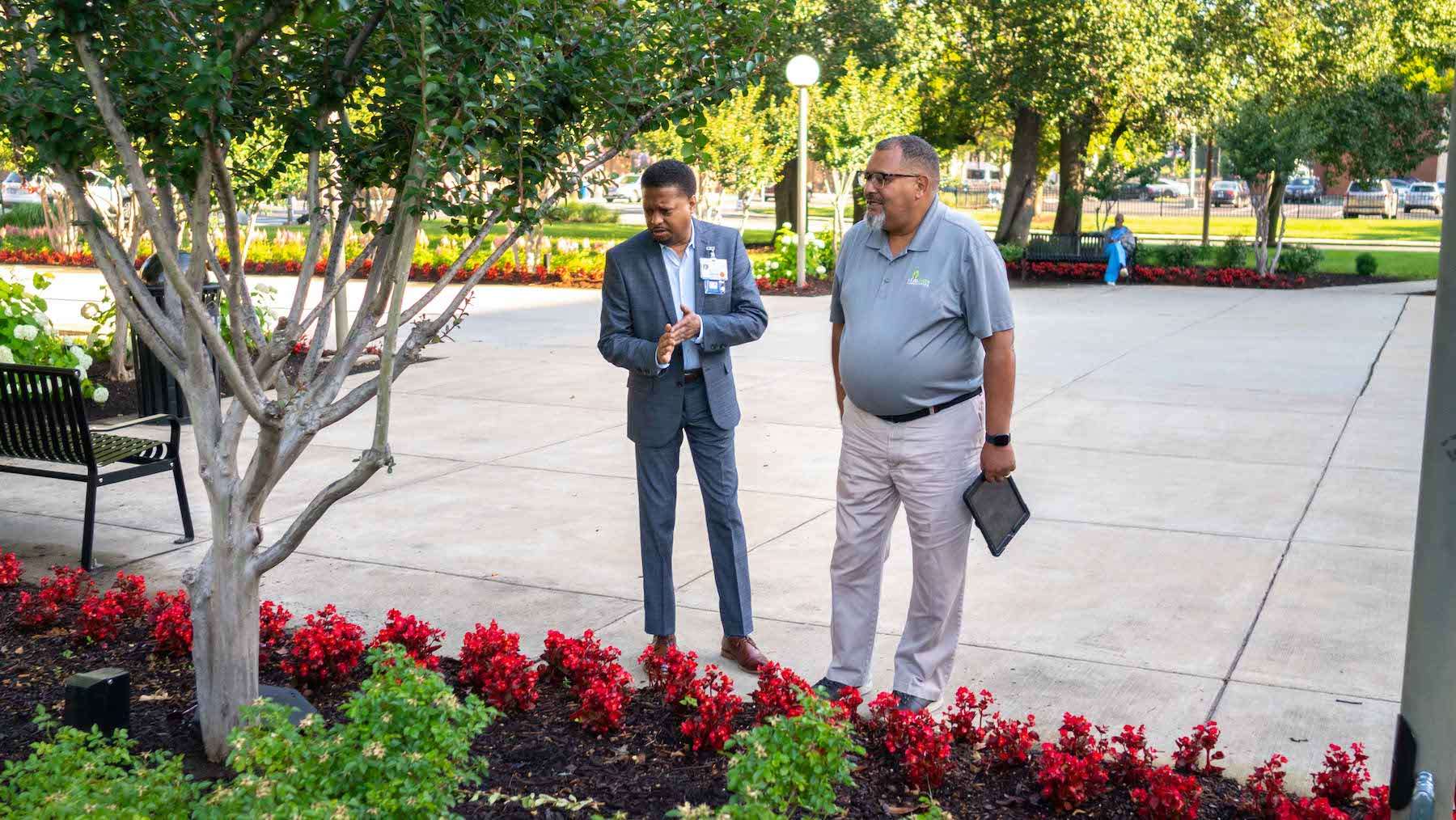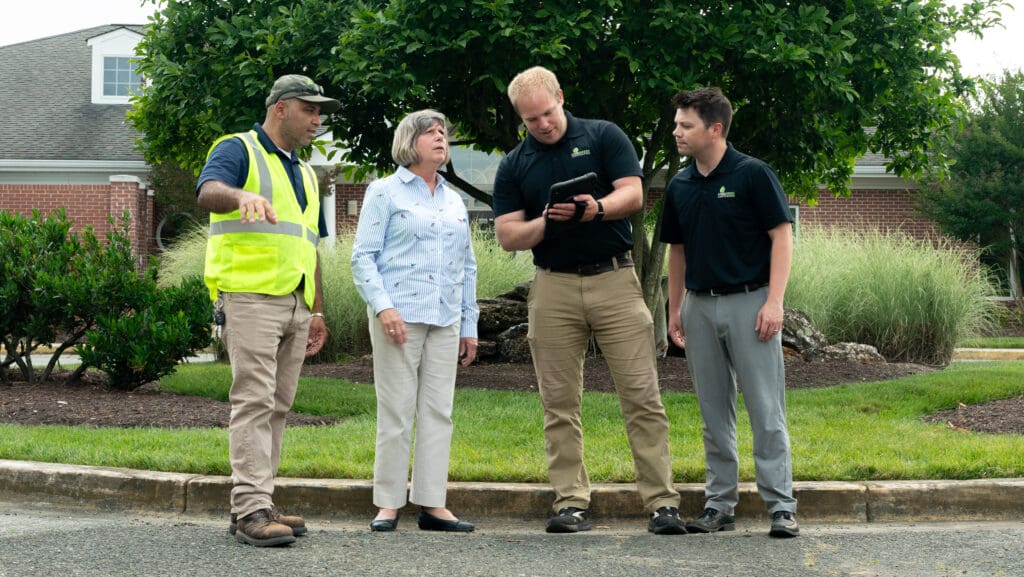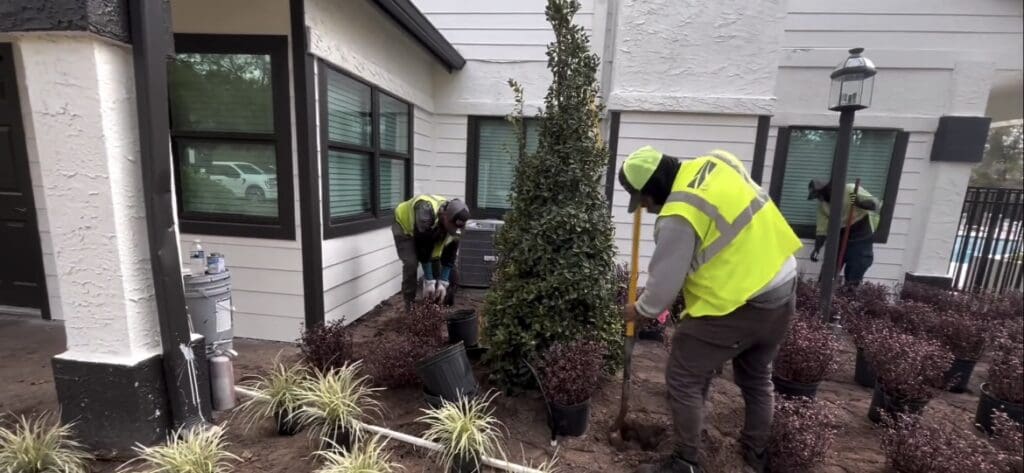
Property managers are the decision-makers for many commercial landscape accounts, so if you’re wondering how you can successfully impress them and close deals with them, take some time to step into their shoes.
One of the easiest ways to discover what matters most to property managers is to reflect on what causes a prospect to look for a new landscape company in the first place.
Larry Leon, director of business development for Level Green Landscaping, based in Upper Marlboro, Maryland, says the majority of clients leave their landscaper for three reasons: poor communication, lack of consistency in service and cost.
Clare Munie, national account manager with Munie Greencare Professionals, based in Caseyville, Illinois, says they get calls for contracts mid-season or during renewal season typically due to lack of consistent quality with a lot of excuses tied to it or lack of proactive communication.
“You will find that, though a customer may be sympathetic to the labor challenges, they pay us so they do not have to worry about that,” Munie says. “Communication, ironically, if done well, something that could negate the challenges that come with labor challenges or equipment being down. If you get communication down, you can arm the customer with solutions and timelines for the people that they have to answer to. With proactive communication, you can set a realistic expectation early so you aren’t getting frustrated calls when time passes.”
Joe Chiellini, president and CEO of ASI Landscape Management, based in Tampa, Florida, says that poor communication can be tied to employee turnover where the client is getting a new account manager every six or eight months and as a result the communication changes or isn’t happening.
“We all have the same type of trucks, whether it be an F-250, a four-door truck or these Izuzu trucks, they’re all the same,” Chiellini says. “They’re either red or green mowers; they either have enclosed trailers or open trailers. There’s not a lot of difference. What makes it different is communication and your account managers, that’s the key to being different.”
What Matters Most
While you may think winning a bid all comes down to cost – pricing is actually lower down on property managers’ priorities.
Chiellini says that in his area they’re starting to reach a point where price isn’t everything anymore.
“I think the economy has rebounded enough, whether it be owners or homeowners on an HOA or CDD, they’re all feeling like we have to get the quality and communication,” Chiellini says. “That’s the two most important things.”

Munie adds price is less important than trust. Property managers are looking for someone they can trust to get things done professionally and as a representation of the customer brand.
“What matters most to property managers from a green industry perspective is that we make the property managers look good,” Munie says. “We as contractors are decisions they made to a big portion of their facility. They have entrusted us with the curb appeal and functionality of their grounds. There is a lot of power in our hands to impress or embarrass. It is our job to ensure our property manager customer looks good on ground aesthetics and on the value against their budget. We should make them look good on how they are communicating to their customer and on-site specific goals such as resident retention for an apartment complex or environmental scores on a commercial complex.”
Leon says property managers choose Level Green Landscaping as they have system to communicate effectively with clients, a high customer retention rate, a strong reputation and competitive pricing.
Chiellini adds that property managers are also looking for ownership as they tend to prefer companies where the owner is involved.
“They’re also looking for smaller regional companies,” Chiellini says. “All these companies getting bought up by the big ones out there, they’re running from them right now. That’s where we’re getting a lot of our work right now.”
Chiellini says customers appreciate the buck stops with him.
“If I say we’re doing this, even though maybe it’s costing us money to give you, the customer, service that is expected in this situation, then that’s what we’re going to do,” Chiellini says. “I don’t have to report to anybody else. So that’s a big difference. Customer service is huge right now in the Tampa Bay area.”
Conveying Your Capabilities
Getting a prospect to understand what you have to offer and how you solve these pain points is critical to sealing the deal. Leon suggests using a concise proposal that speaks directly to the client’s goals and objectives.
ASI bids a lot of larger work and typically, they get a chance to be interviewed. Chiellini says this is where a potential client can see their passion in their presentation. He says they can point out contradictions in the RFP, which highlights how much ASI cares and their attention to detail.

“If you’re not even going to give us an opportunity to present our proposal then we’re probably not going to bid on that job,” Chiellini says.
Chiellini also encourages potential clients to contact their references. ASI’s average tenure with property managers is just over eight years but they have some who have been with the company for 15 years.
“Call out references because I think that’s the number one speaker for you and for your company and how you handle customer service,” Chiellini says.
Leon says they conduct a yearly survey of their top clients for feedback so they can fix any flaws in their system.
“Our capabilities are captured through past jobs and referrals,” Munie says. “Our team takes great pride in being a full-service provider for our customers and expressing our capabilities through our many certifications, completed projects, and current accounts is a strong way to do it.”




